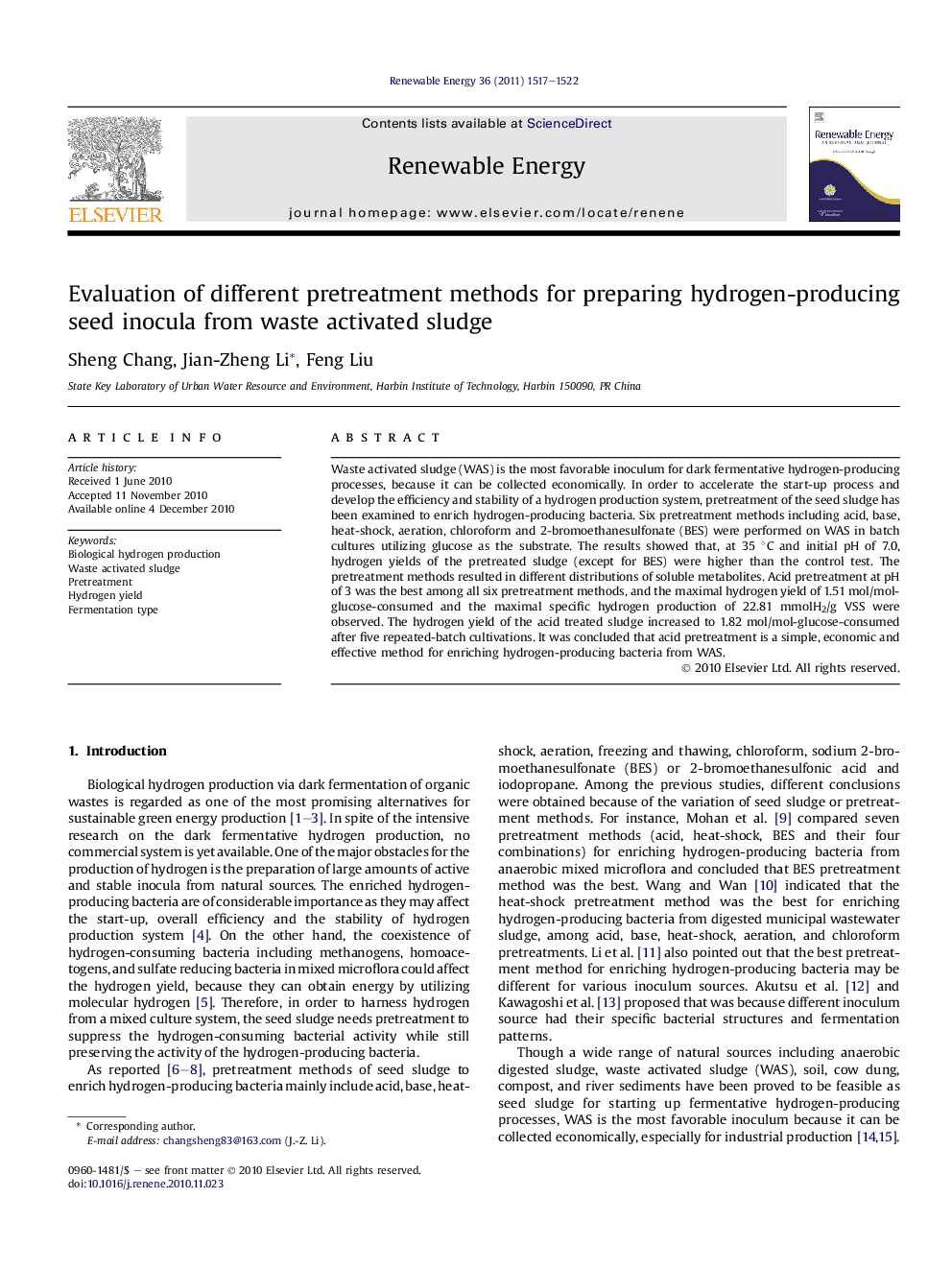| Article ID | Journal | Published Year | Pages | File Type |
|---|---|---|---|---|
| 10294161 | Renewable Energy | 2011 | 6 Pages |
Abstract
Waste activated sludge (WAS) is the most favorable inoculum for dark fermentative hydrogen-producing processes, because it can be collected economically. In order to accelerate the start-up process and develop the efficiency and stability of a hydrogen production system, pretreatment of the seed sludge has been examined to enrich hydrogen-producing bacteria. Six pretreatment methods including acid, base, heat-shock, aeration, chloroform and 2-bromoethanesulfonate (BES) were performed on WAS in batch cultures utilizing glucose as the substrate. The results showed that, at 35 °C and initial pH of 7.0, hydrogen yields of the pretreated sludge (except for BES) were higher than the control test. The pretreatment methods resulted in different distributions of soluble metabolites. Acid pretreatment at pH of 3 was the best among all six pretreatment methods, and the maximal hydrogen yield of 1.51 mol/mol-glucose-consumed and the maximal specific hydrogen production of 22.81 mmolH2/g VSS were observed. The hydrogen yield of the acid treated sludge increased to 1.82 mol/mol-glucose-consumed after five repeated-batch cultivations. It was concluded that acid pretreatment is a simple, economic and effective method for enriching hydrogen-producing bacteria from WAS.
Related Topics
Physical Sciences and Engineering
Energy
Renewable Energy, Sustainability and the Environment
Authors
Sheng Chang, Jian-Zheng Li, Feng Liu,
